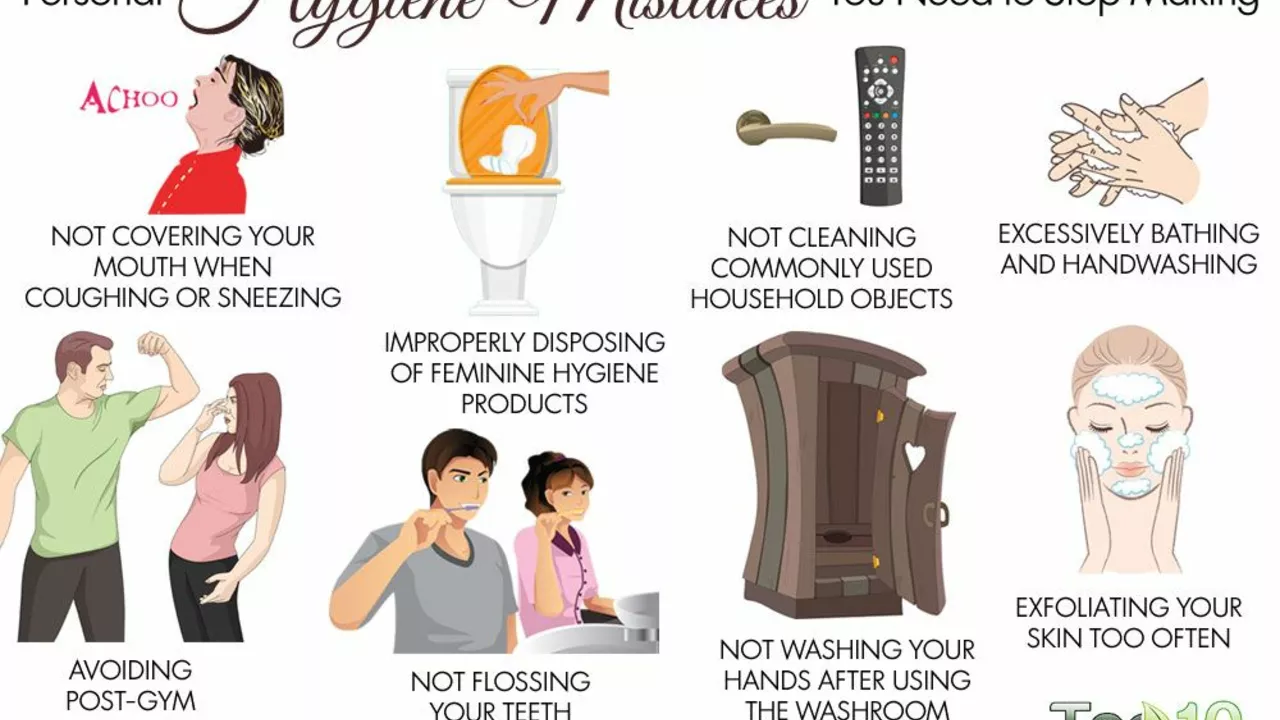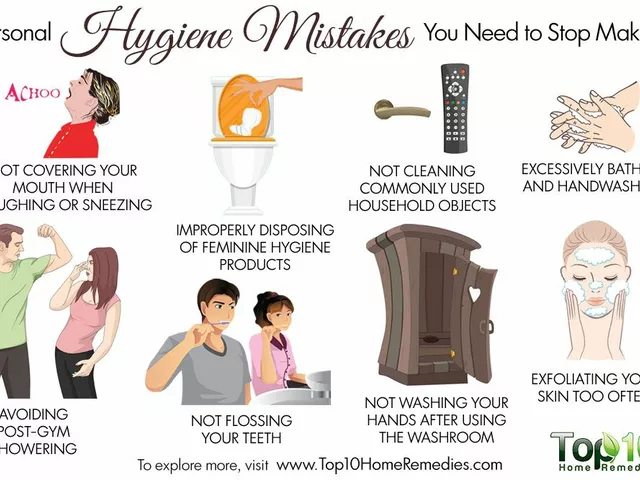Understanding the Importance of Vaginal Hygiene
Maintaining proper vaginal hygiene is crucial for every woman's overall health and well-being. Infections, irritation, and unpleasant odors can all result from poor hygiene practices. In this article, I will share ten essential tips for maintaining proper vaginal hygiene and preventing infections. Following these guidelines will help you feel clean, fresh, and confident every day.
Choose the Right Cleansing Products
Not all personal care products are suitable for intimate hygiene. It's essential to choose gentle, fragrance-free, and pH-balanced cleansing products specifically designed for the vaginal area. Avoid using harsh soaps, scented products, or deodorants, as these can disrupt the natural balance of your vagina and cause irritation or infections.
Wash Your Vagina Correctly
When it comes to washing your vagina, less is more. Gently wash the vulva (the external part of your vagina) with warm water and a mild, unscented cleanser. Remember, the vagina is self-cleaning, so there's no need to wash inside. Overwashing or douching can actually cause more harm than good, as it can disrupt the natural balance of bacteria and lead to infections.
Wipe Front to Back
One of the most basic yet essential hygiene tips is to always wipe from front to back after using the toilet. This helps to prevent the spread of bacteria from the anus to the vagina, reducing the risk of urinary tract infections (UTIs) and other infections.
Change Sanitary Products Regularly
During your period, it's essential to change your sanitary products frequently to maintain proper hygiene. Tampons should be changed every 4-8 hours, while pads should be changed every 4-6 hours, depending on your flow. This helps to prevent the growth of harmful bacteria and reduces the risk of Toxic Shock Syndrome (TSS).
Wear Breathable Underwear
Did you know that the type of underwear you wear can impact your vaginal health? Opt for breathable, moisture-wicking fabrics like cotton, and avoid synthetic materials like nylon, which can trap moisture and create a breeding ground for bacteria. Also, make sure your underwear fits comfortably and isn't too tight, as this can cause chafing and irritation.
Maintain a Healthy Diet
Believe it or not, the food you eat can affect your vaginal health. A well-balanced diet that includes plenty of fruits, vegetables, whole grains, and healthy fats can help to maintain the natural balance of bacteria in your vagina. In addition, consuming probiotics found in yogurt or supplements can promote the growth of good bacteria and help prevent infections.
Practice Safe Sex
Engaging in safe sex practices is another essential aspect of maintaining proper vaginal hygiene. This includes using condoms to reduce the risk of sexually transmitted infections (STIs), getting regular STI screenings, and communicating openly with your partner about your sexual health.
Stay Hydrated
Drinking enough water is essential for overall health, and your vagina is no exception. Staying hydrated can help to prevent vaginal dryness, which can cause discomfort and increase the risk of infections. Aim to drink at least eight glasses of water per day to keep your body and vagina functioning optimally.
Visit Your Gynecologist Regularly
Finally, make sure to schedule regular check-ups with your gynecologist to keep your vaginal health in check. These appointments are crucial for detecting any potential issues early and discussing any concerns or questions you may have about your vaginal hygiene.
By following these ten tips, you can maintain proper vaginal hygiene and reduce your risk of infections. Remember, every woman's body is different, so it's essential to find a routine that works best for you and your unique needs. Always consult with your healthcare provider if you have any concerns or questions about your vaginal health.






jake cole
June 26, 2023 at 02:07
Stop pretending you can skip basic steps-if you still think douching is harmless, you’re just courting infection.